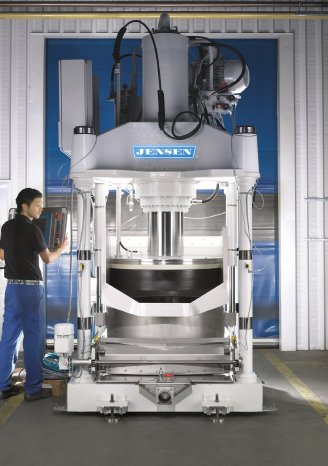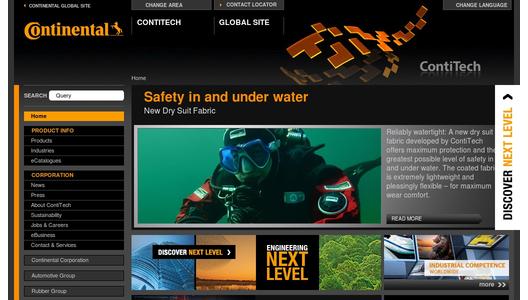- Different hardness levels in one press pad extend service life
- Particularly resistant in areas susceptible to friction
- Low residual moisture of 30 to 40 percent
Not only does the laundry in large-scale, industrial laundry facilities need to be clean, but it also has to dry quickly. Rubber press pads help to remove water from the washed fabrics quickly and safely. ContiTech has now joined forces with one of the world's leading manufacturers of industrial laundry systems, the JENSEN-GROUP, to develop a new type of press pad, made from two elements, for use in tunnel water removal presses. A unique feature of this product is that, in the high-friction flank area, a hard rubber compound with a hardness of Shore 80 is used, while the floor and flank area responsible for pressing is made from a softer compound. This material mix makes the pad particularly durable and ensures that moisture is removed from the laundry effectively after washing. "The new pad means that a very low residual moisture level of only 30 to 40 percent can be achieved after the pressing process - while the service life of the system is extended at the same time," comments Tobias Toczkowski, Key Account Manager at ContiTech Vibration Control.
Long-lasting despite high friction
The beating heart of every industrial tunnel washer is the water removal press. Once the laundry has undergone several cleaning stages, the laundry batch in question automatically falls into the water removal press that comes next in the sequence. A hydraulic ram is used to press the water out of the fabrics. Attached to its underside is the press pad, which is filled with water. When the laundry is pressed, it enables an even distribution of pressure while simultaneously protecting the fabric. The weight of the wet laundry reduces and the actual drying process in industrial dryers is accelerated.
In order to extend the service life of the press pads, ContiTech and the JENSEN-GROUP have jointly developed the new two-element press pad. ContiTech has modified its production line at the Dolné Vestenice plant in Slovakia to manufacture a pad with two different hardness levels. With a new tool and alterations to the peripheral equipment, both conventional press pads with one element and the new version with two elements can now be produced in high volumes. Series production of the new two-element press pad will begin in mid-2015.


